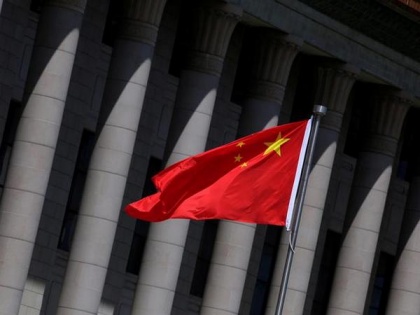Ghana's bauxite deal with Chinese state-owned firm poses environmental risk: Report
By ANI | Published: March 21, 2021 08:11 PM2021-03-21T20:11:35+5:302021-03-21T20:20:02+5:30
Ghana's bauxite deal with a Chinese state-owned firm draws sharp criticism from environmentalists who warned that mining in the country's key forests would pose environmental risks.

Ghana's bauxite deal with Chinese state-owned firm poses environmental risk: Report
Ghana's bauxite deal with a Chinese state-owned firm draws sharp criticism from environmentalists who warned that mining in the country's key forests would pose environmental risks.
In 2018, Ghana signed a bauxite-for infrastructure deal with Chinese state-owned firm Sinohydro Corp that would allow the Chinese company to invest about USD2 billion in the West African nation's infrastructure.
In exchange, Ghana would use the money earned from the sale of bauxite (the primary ore used to make aluminium), refined bauxite and aluminium to repay the loans.
As collateral, Ghana agreed to establish an offshore escrow account for receiving revenues generated from the sale of bauxite.
So far, USD 646 million of the loan funds have been approved for disbursement.
A report by Duke university warned that the cost of the proposed aluminium industry projects linked to the Sinohydro agreement would outweigh the potential benefits, South China Morning Post reported.
"If Ghana fails to comply with its collateral or repayment obligations, Sinohydro is entitled to prepayment of outstanding loan balances and may seize the full balance of the escrow account," the report said.
Ghana's domestic aluminium industry does not generate sufficient revenues to satisfy its loan repayment and collateral obligations.
To overcome this, Ghana created a state-owned enterprise known as the Ghana Integrated Aluminium Development Corporation to develop aluminium industry projects and related infrastructure.
The corporation plans to establish up to three new bauxite mines, three new alumina refineries, one new aluminium smelter and will hold a minimum of 30 per cent interest in new aluminium industry projects alongside private investors.
The main contention with environmentalists is the plan to permit bauxite mining in Atewa Forest - a biodiverse forest preserve - the main source of three major rivers that provide water for five million people.
Three global manufacturing compes - BMW Group, Tetra Pak and Schuco International - recently said they would not source bauxite from Ghana's Atewa Forest due to the environmental risks associated with mining the forest.
"By calling out the risky nature of mining bauxite in the Atewa Forest, BMW Group, Tetra Park and Schuco International have certainly put the business community on notice and at the minimum, their peer firms are likely to proceed with caution when sourcing bauxite from Ghana in the future," said Terrence Neal, a natural resources governance researcher and author of the report.
Neal said studies had shown that Chinese extractive compes often had less experience and less developed internal structures for engaging with local communities and other stakeholders than their Western counterparts.
When developing and operating overseas projects, Chinese investors and firms often placed less importance on voluntary environmental and social standards, he said.
"This is not to say, however, that China-Africa resource-financed infrastructure agreements per se cannot be leveraged in a manner that comports with sustainable development objectives," he said.
( With inputs from ANI )
Disclaimer: This post has been auto-published from an agency feed without any modifications to the text and has not been reviewed by an editor
Open in app